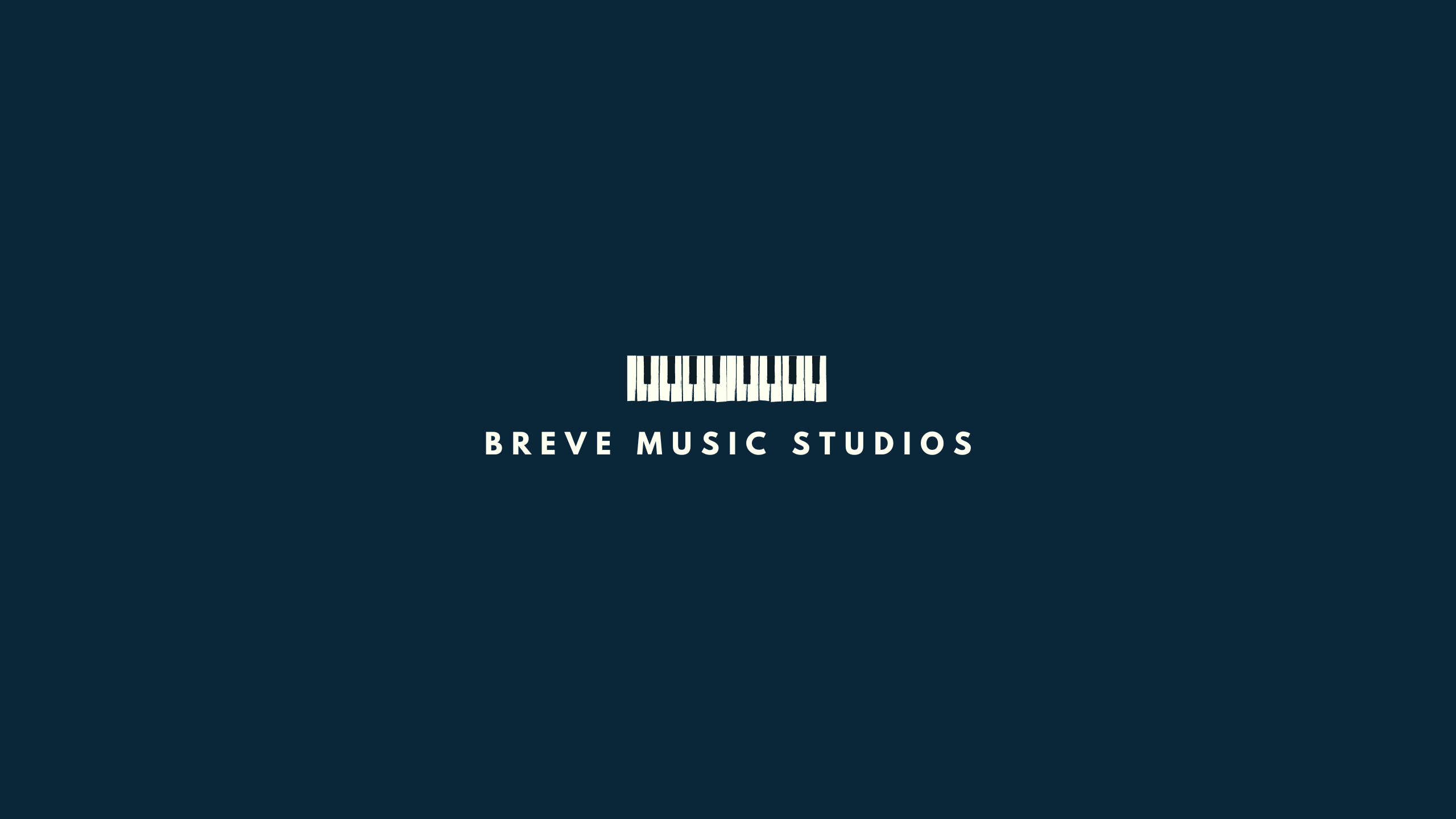Table of Contents
3 Fundamental Music Business Tips
My music business began in 2017 with a laptop and Audacity. I used my first music distributor, Routenote.com, to release Solfeggio Frequencies. Since then, a lot has changed and I’ve learned a lot about the music business.
I’ve started publishing music with more instruments (i.e. Breve Orchestra and Breve Music Ensemble)
Here are 3 music business tips that can help you grow your music business:
- Sign up for a Performing Rights Organization (PRO) like ASCAP or BMI. digital, terrestrial (i.e. AM and FM radio) and live royalties.
- Distribute your music like Distrokid and Landr collect your master recording rights.
- Make an account with SongTrust AND SoundExchange. SongTrust allows you to capture all your mechanical royalties from streaming platforms. SoundExchange collects royalties from radio programs.
Common Revenue Streams in Music Business
The music industry has undergone significant changes. With the rise of online streaming services, social media platforms, and other digital distribution channels, musicians have more revenue streams available to them than ever before. Let’s take a closer look at some of the modern revenue streams for musicians.
1. Mechanical streaming royalties
With the growth of music streaming services like Spotify and Apple Music, streaming royalties have become a crucial revenue stream for musicians. These platforms pay artists based on the number of streams their music receives. While the amount paid per stream may seem small, with the right marketing and promotion, streaming royalties can add up quickly. Your music distributor collects your royalty from the audio copyright, but you need to register with SongTrust to secure your composition royalty (when a song is streamed).
2. Merchandise
Merchandise sales have long been a source of revenue for musicians. From t-shirts to vinyl records, merchandise can help artists connect with fans while also providing a steady stream of income. In recent years, digital merchandise has also become popular, with artists selling items like virtual concert tickets, exclusive content, and limited edition digital downloads.
3. Sync licensing
Sync licensing involves placing music in TV shows, movies, and commercials. This is a lucrative revenue stream for musicians as it provides exposure to new audiences and pays well. With the growth of online streaming services and content creation, sync licensing opportunities have increased.
4. YouTube revenue
YouTube has become a platform for artists to promote their music and connect with fans. YouTube revenue comes from ad revenue on videos, as well as revenue from sponsored content and partnerships. By building a strong presence on YouTube, musicians can earn a significant amount of money.
5. Crowdfunding
Crowdfunding has become a popular way for musicians to fund their projects and connect with fans. Platforms like Kickstarter and Patreon allow artists to raise money for recording projects, tours, and other expenses. By offering exclusive perks to their supporters, musicians can build a loyal fanbase and secure funding for their creative endeavors.
6. Live performance
Live performances have always been an essential part of a musician’s revenue stream. In recent years, the rise of virtual concerts has provided new opportunities for musicians to perform and earn money. With the ability to reach a global audience, virtual concerts can be a lucrative revenue stream for musicians.
The music industry has changed significantly in recent years, providing musicians with a range of modern revenue streams. From streaming royalties to merchandise sales, sync licensing to YouTube revenue, crowdfunding to live performances, musicians have more options than ever before to monetize their talent and connect with fans. By embracing these revenue streams and adapting to the changing music industry landscape, musicians can achieve financial success while also pursuing their creative passions.
Ethics in Music Business
Ethics play a crucial role in any business, including the music industry. In fact, ethical conduct is fundamental to the sustainability and success of the music business. The music industry involves a complex web of relationships, transactions, and interactions that require honesty, integrity, and respect. Ethical conduct helps to build trust, strengthen relationships, and enhance the reputation of music industry professionals.
Here are some of the key ways in which ethics are essential to the music business:
Fair Treatment of Artists and Music Industry Professionals
Ethics in the music industry demand that artists and music industry professionals are treated fairly and equitably. This includes ensuring that artists are compensated fairly for their work and that their rights are respected. Music industry professionals should also be paid fairly for their services and provided with a safe and respectful working environment. Ethical conduct in this area can help to build trust and foster long-term relationships between artists and music industry professionals.
Transparency and Honesty in Business Practices
Ethical business practices require transparency and honesty in all transactions and interactions. This means being clear and upfront about fees, contracts, and other terms and conditions. Music industry professionals should also be open and honest in their communication with clients and colleagues. This helps to build trust and can prevent misunderstandings or conflicts down the line.
Respect for Intellectual Property Rights
The music industry is built on intellectual property, including copyrights and trademarks. Ethical conduct in the music industry requires respect for intellectual property rights. This includes obtaining permission to use copyrighted material and giving credit where credit is due. Music industry professionals who engage in ethical conduct in this area can help to promote creativity and innovation, while also protecting the rights of artists and other creators.
Support for Diversity and Inclusion
The music industry is diverse, with artists and industry professionals from all backgrounds and cultures. Ethical conduct in the music industry requires support for diversity and inclusion. This means providing opportunities for artists and industry professionals from all backgrounds, as well as promoting respect and understanding across cultural divides. By embracing diversity and promoting inclusion, the music industry can benefit from a wide range of perspectives and ideas.
Commitment to Social Responsibility
Ethical conduct in the music business also requires a commitment to social responsibility. This means supporting causes and initiatives that benefit society as a whole. For example, many music industry professionals use their platforms to raise awareness about important issues, such as climate change, social justice, and human rights. By using their influence for good, music industry professionals can make a positive impact on the world around them.
Ethics are essential to the success and sustainability of the music industry. By promoting fair treatment, transparency, respect for intellectual property rights, diversity and inclusion, and social responsibility, music industry professionals can build trust, strengthen relationships, and enhance their reputation. By embracing ethical conduct, the music industry can continue to thrive and evolve in a rapidly changing world.

Artist Management
Artist management is a crucial aspect of the music business, helping artists navigate the complex world of music business, from recording and releasing music to touring and marketing. The role of an artist manager is to act as a liaison between the artist and the music industry, providing support, guidance, and representation to help artists achieve their goals and reach their full potential.
Here are some key aspects of artist management in music business:
Career development
An artist manager is responsible for helping their artist develop their career, setting goals and creating a plan to achieve them. This includes developing a strong brand, identifying the artist’s target audience, and creating a marketing and promotional strategy.
Contract negotiation
Artist managers are skilled negotiators and are responsible for negotiating contracts with record labels, publishers, booking agents, and other industry professionals on behalf of the artist. They ensure that the artist gets the best deal possible, including fair compensation and favorable terms.
Financial management
An artist manager is responsible for managing the artist’s finances, including budgeting for recording sessions, tours, and other expenses. They also ensure that the artist is receiving fair compensation for their work and that they are paid on time.
Touring and live performance
An artist manager is responsible for booking gigs and tours, arranging transportation and accommodations, and ensuring that the artist has everything they need to perform at their best. They also work to build relationships with promoters, venue owners, and other industry professionals to help the artist expand their fan base and reach new audiences.
Creative development
An artist manager is often involved in the creative process, working closely with the artist to help them develop their sound and style. They may provide feedback on new music, help with songwriting and production, and provide guidance on branding and visual aesthetics.
Overall, artist management plays a crucial role in the success of musicians in the music industry. By providing support, guidance, and representation, artist managers help artists navigate the complexities of the music business and achieve their goals. A strong artist-manager relationship is built on trust, communication, and shared vision, and can make all the difference in an artist’s career.
Conclusion
Marketing your music requires a combination of online and offline strategies. Building a strong online presence, collaborating with other musicians and brands, releasing your music on streaming platforms, utilizing video content, playing live shows, and using paid advertising are all essential aspects of marketing your music successfully. Remember to stay consistent, engage with your fans, and always be open to new opportunities.
Additional Reading
After reviewing these music business tips, feel free to check out our other articles.
Do you also use orchestral strings or woodwinds instruments in your mixes? Read our article about the 10 Best Orchestral VSTs and 10 of the top Woodwind VSTs.
Also, check out this article comparing compressors and limiters. You can also learn about gain staging.
Breve Music Studios publishes music to Spotify, YouTube Music, Amazon Music and more. Follow our pages on Facebook, Instagram, Twitter, TikTok, and YouTube.
Listen to our ensembles: Breve Orchestra, Breve Music Ensemble, Breve Low Brass Ensemble, Breve Woodwind Ensemble, and Jermaine Harris on Spotify.

